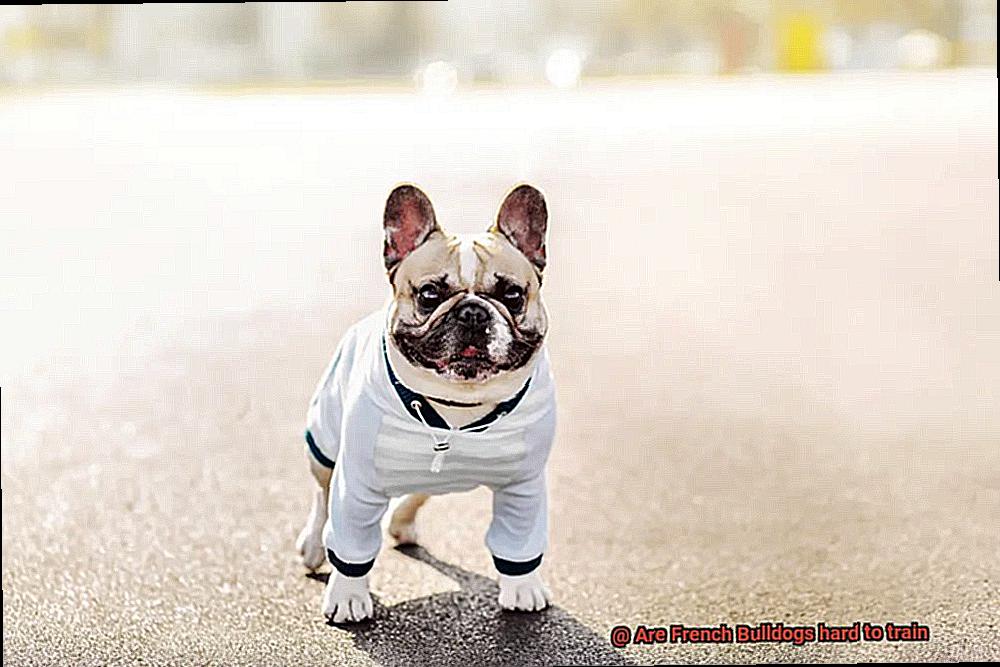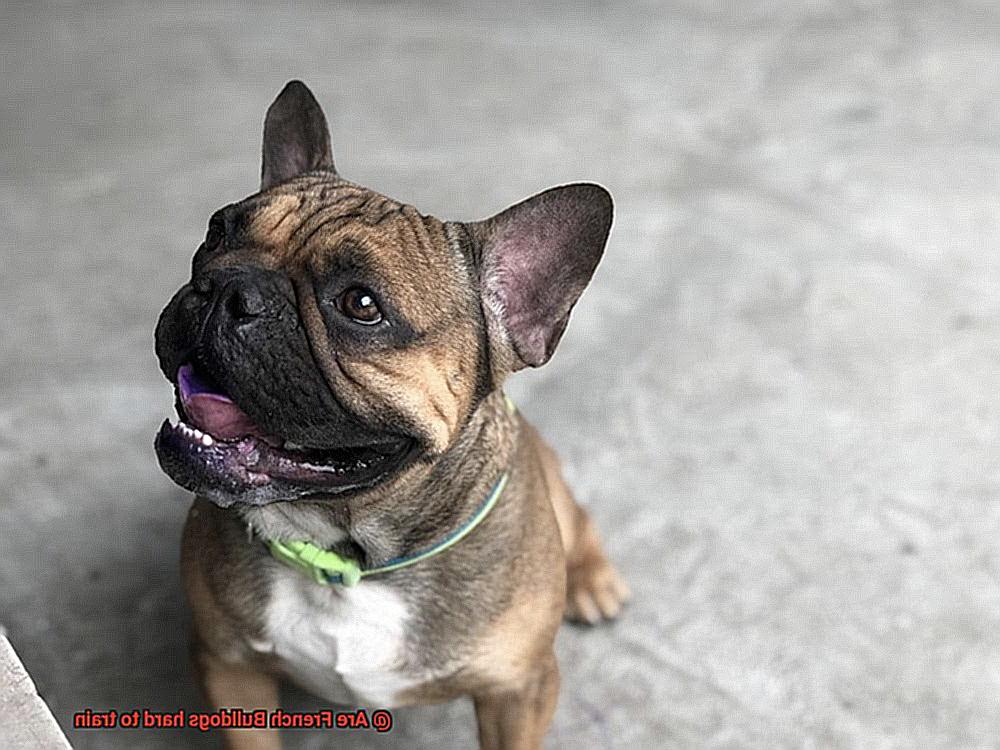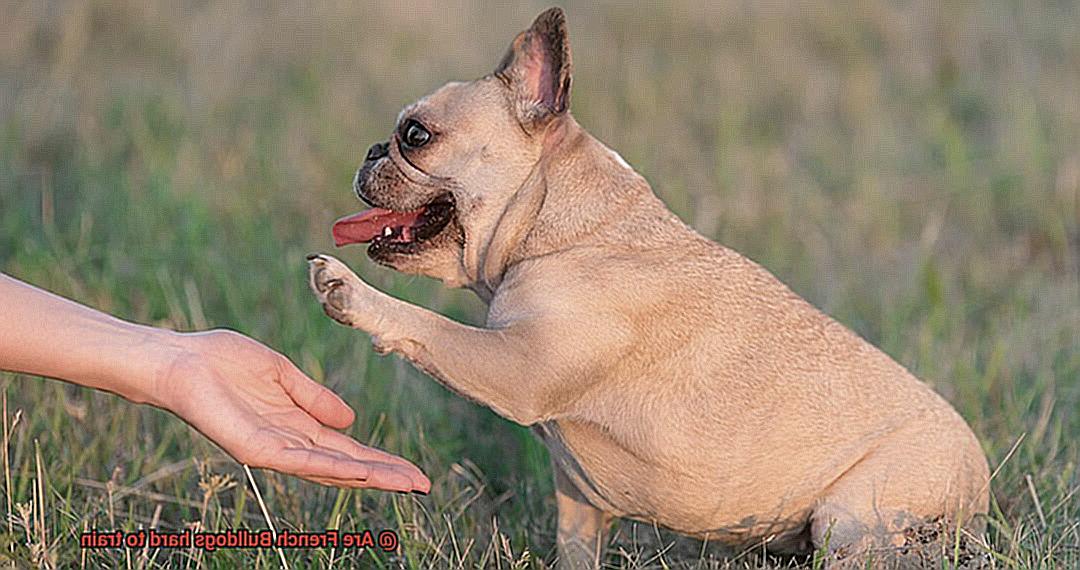Are French Bulldogs hard to train?
Welcome to our blog post where we delve into the adorable but sometimes challenging world of training French Bulldogs. These little rascals are known for their playful personalities and distinctive looks that can melt even the coldest hearts. But let’s be real, behind those cute smooshed faces lie some unique training hurdles.
Whether you’re a proud Frenchie owner or thinking about adding one to your family, it’s important to understand the potential difficulties that may arise during the training process. French Bulldogs have a reputation for being a bit stubborn and independent, which can make them harder to train compared to some other breeds.
But fear not. We’re here to help you navigate through this training adventure with your Frenchie. In this post, we’ll explore the reasons why French Bulldogs can be a tad trickier to train, while also providing you with some helpful tips and insights that will make your training journey with your Frenchie a success story worth bragging about.
So buckle up and get ready for some pawsome advice on how to tackle those training challenges head-on. Let’s dive in.
The Stubborn Nature of French Bulldogs
Contents
- 1 The Stubborn Nature of French Bulldogs
- 2 The Sensitive Nature of French Bulldogs
- 3 Short Attention Span of French Bulldogs
- 4 Early Socialization for French Bulldogs
- 5 Positive Reinforcement Techniques for Training
- 6 Consistency is Key When Training a French Bulldog
- 7 Tailoring Training Methods to Suit Your Dog’s Needs
- 8 Understanding the Unique Traits of French Bulldogs
- 9 Conclusion
We all know that these little bundles of joy can be quite stubborn when it comes to training. But fear not, because I’m here to share some expert tips and tricks to help you overcome those stubborn tendencies and turn your Frenchie into a well-behaved companion.
First things first, let’s talk about why French Bulldogs can be so stubborn. These adorable little rascals have a strong-willed and independent personality that can sometimes make them less motivated to follow commands. It’s in their nature to do things on their own terms and seek out their own entertainment. But don’t worry, with the right approach, you can still teach them some manners.
Positive reinforcement is the name of the game when it comes to training French Bulldogs. These clever pups respond best to rewards, such as treats, praise, or playtime. By focusing on rewarding good behavior rather than punishing bad behavior, you’ll see better results. Remember, no one likes being scolded, especially our sensitive Frenchies.
Consistency is key when training French Bulldogs. Establishing a routine and sticking to it helps them understand what is expected of them. Set clear boundaries and reinforce rules consistently, even if they resist at first. French Bulldogs thrive on structure and routine, and they’re more likely to respond well when they know what’s expected of them.
Now, let’s not forget that French Bulldogs have a relatively short attention span. Keep training sessions short and engaging to maintain their focus. Break up training into smaller sessions throughout the day instead of long, boring ones. Trust me, your Frenchie will appreciate it.
Socialization is another crucial aspect of training for French Bulldogs. These lovable little goofballs form strong bonds with their owners and may develop separation anxiety if not properly socialized from a young age. Introduce them to different people, animals, and environments early on to build their confidence and prevent behavior issues down the line.
Remember, every Frenchie is unique, and some may take longer to grasp certain commands or behaviors. Be flexible in your approach and tailor training methods to suit your individual dog’s needs. With patience, persistence, and a little creativity, you’ll be amazed at what your stubborn little Frenchie can achieve.
The Sensitive Nature of French Bulldogs
The Sensitive Nature of French Bulldogs: Training Challenges and Solutions
French Bulldogs are delightful little creatures known for their adorable wrinkled faces and affectionate personalities. However, their sensitive nature can present some challenges when it comes to training them. In this article, we will explore the unique characteristics of French Bulldogs and how their sensitivity affects the training process. So, grab a cup of coffee, sit back, and let’s dive into the world of these sensitive little furballs.
Positive Reinforcement: The Key to Success
French Bulldogs are highly responsive to positive reinforcement techniques. They thrive on praise and rewards, so it’s important to focus on positive reinforcement rather than punishment. Harsh training methods or scolding can have a detrimental effect on their sensitive nature, leading to fear or anxiety. Instead, use treats, toys, and enthusiastic praise to motivate your Frenchie during training sessions.
Consistency is King
French Bulldogs appreciate routine and clear boundaries. They feel more secure in an environment where expectations are consistent. Establishing a daily training routine and sticking to it will help your Frenchie understand what is expected of them. Remember, consistency is key.
A Gentle Approach
Due to their sensitivity, it’s crucial to avoid any harsh or forceful training methods. French Bulldogs may shut down or become resistant if they feel overwhelmed or threatened. Instead, focus on building trust and creating a positive learning environment. Use gentle guidance and patience to bring out the best in your Frenchie.
Socialization: The Key to Confidence
French Bulldogs can be prone to separation anxiety if not properly socialized from a young age. It’s essential to expose them to different people, animals, and environments gradually and positively. This helps them develop confidence and adaptability. Take them for regular walks in the park, introduce them to friendly dogs, and invite friends over for playdates. Socialization is the secret ingredient for a well-rounded Frenchie.
Understanding Individual Temperament
Every French Bulldog is unique, with their own individual temperament. Some may be more sensitive than others, requiring a tailored approach to training. Take the time to understand your Frenchie’s personality and adjust your training methods accordingly. This will help you build a strong bond and achieve optimal results.
Short Attention Span of French Bulldogs
French Bulldogs are undeniably adorable and make fantastic companions. However, their short attention span can pose a challenge when it comes to training. In this blog post, we’ll delve into the reasons behind their short attention span and provide practical tips for successful training. So, grab a cup of coffee, sit back, and let’s dive in.
Understanding the Brachycephalic Breed:
French Bulldogs belong to the brachycephalic breed, characterized by their shorter muzzles and elongated soft palates. Due to their unique anatomy, these dogs can struggle with efficient breathing, which often leads to fatigue and limited stamina. It’s no wonder they find it difficult to maintain focus for extended periods of time.
Stubbornness: A Double-Edged Sword:
In addition to their brachycephalic nature, French Bulldogs are known for their stubbornness. They have an independent streak and love doing things their own way, which can be frustrating during training sessions. But fear not. With a little patience and the right approach, you can overcome this challenge.
Tips for Successful Training:
- Keep it short and sweet: French Bulldogs have a limited attention span, so regular but brief training sessions work best. Aim for 10-15 minutes per session, multiple times a day.
- Positive reinforcement is key: Frenchies respond well to rewards like treats, praise, and playtime. Use these incentives to motivate and engage your pup during training.
- Mix it up: Variety is the spice of life. French Bulldogs thrive on novelty and mental stimulation. Introduce new tricks or activities regularly to keep them interested and prevent boredom.
- Be patient: Every dog is unique, and some French Bulldogs may have a longer attention span than others. Tailor your training methods to suit your pup’s needs and capabilities, and remember to celebrate small victories along the way.

French Bulldogs may have a short attention span, but with the right training techniques, you can successfully overcome this challenge and build a strong bond with your furry friend. Remember to keep sessions short, use positive reinforcement, introduce variety, and be patient.
By understanding and working with their unique traits, you’ll unlock the full potential of your French Bulldog and create a well-behaved and happy companion.
Early Socialization for French Bulldogs
However, their short attention span can make training a bit of a challenge. In this blog post, we’ll dive into the importance of early socialization for French Bulldogs and provide practical tips to help you raise a well-rounded and confident furry friend. So grab a cup of coffee, sit back, and let’s unravel the secrets of early socialization.
Why is Early Socialization Crucial?

Early socialization is the foundation upon which well-behaved and socially adept French Bulldogs are built. It helps them develop crucial skills and confidence to navigate the world around them. Let’s explore the key reasons why early socialization is so important for your furry friend:
Building Positive Interactions with People:
Introducing your French Bulldog to different people from an early age is essential for their social development. By exposing them to family members, friends, and even strangers, they learn how to interact with people of all ages and sizes. This exposure helps them grow up to be friendly and well-mannered dogs.
Tips:
- Invite visitors over regularly to expose your Frenchie to new faces.
- Take your pup on walks in public places to encounter different people.
- Consider enrolling in puppy socialization classes for controlled interactions.
Developing Appropriate Animal Etiquette:
French Bulldogs need to learn how to behave around other animals, including cats, dogs, and small creatures like rabbits or birds. Proper socialization teaches them appropriate social cues and helps prevent behavioral issues when interacting with other species.
Tips:
- Arrange supervised playdates with other dogs or cats to encourage positive interactions.
- Visit dog parks where your Frenchie can safely engage with other animals in a controlled environment.
Adapting to Different Environments and Situations:
Exposing your French Bulldog to various environments and stimuli helps them become adaptable and less prone to anxiety or fear in unfamiliar situations. This includes introducing them to different surfaces, sounds, and experiences.
Tips:
- Gradually expose your Frenchie to different surfaces like grass, sand, or hardwood floors.
- Play recordings of traffic noise, vacuum cleaners, or doorbells ringing to familiarize them with common sounds.
- Take your pup on outings to new places, such as parks or crowded areas, to expose them to diverse situations.
The Power of Consistency and Positive Reinforcement:
During the early socialization process, consistency and positive reinforcement are key. Reward desired behaviors with treats, praise, or playtime to reinforce positive associations with new experiences. This approach encourages your Frenchie’s willingness to explore and learn.
Positive Reinforcement Techniques for Training
If you’re a proud owner of a French Bulldog, you know that training them can sometimes be a challenge. But fear not. With the right techniques and a positive mindset, you can effectively train your French Bulldog and create a strong bond that lasts a lifetime.

In this article, we will explore the importance of positive reinforcement techniques when training your French Bulldog and provide practical tips to help you along the way.
Why Positive Reinforcement?
Positive reinforcement is all about rewarding desired behaviors to encourage their repetition. It focuses on creating a positive learning environment for your French Bulldog, which is crucial for their overall development and obedience. By using rewards such as treats, praise, or toys, you can motivate your furry friend to exhibit good behavior consistently.
The Food-Motivated French Bulldog:
French Bulldogs are notorious for their love of food. They are highly food-motivated, which makes positive reinforcement an incredibly effective training technique for them. Using small, easily consumable treats that your French Bulldog finds highly desirable will keep them engaged and motivated during training sessions.
Creating a Positive Association:
One of the main benefits of positive reinforcement is that it creates a positive association with training sessions for your French Bulldog. By using rewards and praise instead of punishments or aversive techniques, you establish a bond of trust and build a positive learning environment. This makes the training process enjoyable for both you and your dog.

Timing is Everything:
To make positive reinforcement effective, timing is crucial. You must reward your French Bulldog immediately after they perform the desired behavior. This helps them make the connection between the behavior and the reward. For example, if you are teaching your French Bulldog to sit, give them a treat as soon as their bottom hits the ground.
Consistency is Key:
Consistency is another vital aspect of positive reinforcement training. You should consistently reward your French Bulldog for displaying the desired behaviors while ignoring or redirecting unwanted behaviors. By consistently reinforcing good behavior, you are more likely to see progress and long-term success in training.
Praise and Petting:
In addition to treats, praise and petting are also powerful rewards for French Bulldogs. Verbal cues such as “good boy” or “good girl” accompanied by gentle petting can strengthen the positive association with the desired behavior. Be sure to use an enthusiastic and upbeat tone of voice to convey your approval and excitement.
Tailor Your Approach:
While positive reinforcement is highly effective, it may not work equally well for every French Bulldog. Each dog is unique and may respond differently to various training methods. Some French Bulldogs may require more time and patience, while others may pick up on training quickly. It is important to tailor your training approach to your individual dog’s needs and temperament.
Consistency is Key When Training a French Bulldog
If you’re the proud owner of a French Bulldog or considering adding one to your family, it’s important to understand that consistency is the key to successful training. As an expert in all things French Bulldog, I can tell you from personal experience that these adorable little pups thrive on routine and structure. So, let’s dive into why consistency is essential when it comes to training your Frenchie.
Using the Same Commands and Cues
Picture this: you’re teaching your French Bulldog to sit. Today, you say “sit” and use a hand signal, and tomorrow, you say “down” without any hand gesture. Confusing, right? Well, our furry friends can easily get mixed up if we’re not consistent with our commands and cues. To avoid any confusion, use the same word or hand signal every time. This helps your Frenchie understand what’s expected of them and speeds up the learning process.
A Regular Training Schedule
Just like us humans, French Bulldogs appreciate a routine. Set aside dedicated time each day for training sessions and stick to it. Trust me; your Frenchie will thank you for it. Consistency in training schedules helps reinforce the routine and reinforces the lessons learned. Plus, it creates a special bonding time between you and your pup.
Reactions and Responses Matter
We all have those days when we’re feeling a bit more lenient with our furry friends. But inconsistency in our reactions and responses to their behavior can confuse them. For instance, if your Frenchie jumps on you one day and you allow it but then reprimand them for the same behavior another day, they won’t know what’s acceptable anymore. Consistently reinforcing desired behaviors and correcting unwanted ones will help your French Bulldog understand what is expected from them.
Consistency Beyond Training Sessions
Training shouldn’t stop at the end of a session. Consistency should extend to all aspects of your French Bulldog’s life. Establish a regular feeding schedule, exercise routine, and daily routine. This helps create a sense of predictability and stability for your furry friend, which aids in their overall training. Plus, it makes your life as a dog owner much easier.
Patience and Dedication
Now, consistency requires patience and dedication. Just like Rome wasn’t built in a day, your French Bulldog won’t become the perfect little angel overnight. It takes time for them to fully grasp and comply with the training concepts. So, stay positive and persistent, and eventually, your efforts will pay off.
Tailoring Training Methods to Suit Your Dog’s Needs
Training a French Bulldog can be a rewarding experience, but it requires tailoring your approach to suit their unique needs and temperament. In this article, we will explore effective training methods that have been specifically adapted for French Bulldogs, ensuring a successful and enjoyable training journey.
Understanding Your French Bulldog’s Temperament:
French Bulldogs have distinct personalities and learning styles. It’s crucial to assess your dog’s temperament to determine the most effective training methods. Some Frenchies may be food motivated, while others respond better to praise and playtime. By identifying what motivates your dog, you can tailor your training approach accordingly.
Positive Reinforcement:
Positive reinforcement is the foundation of successful training for French Bulldogs. By rewarding desired behaviors with treats, praise, or playtime, you can encourage your dog to repeat those behaviors. This method creates a positive association between good behavior and rewards, making the training process more enjoyable for your Frenchie.
Consistency is Key:
Consistency is crucial when training French Bulldogs. Establish clear rules and boundaries from the start and maintain consistency in your approach. This means using the same commands, cues, and reactions consistently throughout training sessions. Consistency minimizes confusion and helps your Frenchie understand what is expected of them.
Short and Engaging Training Sessions:
French Bulldogs have a relatively short attention span, so it’s important to keep training sessions short and engaging. Aim for frequent, shorter sessions that are fun and interactive for both you and your dog. This will help keep your Frenchie focused and motivated during training.
Tailor Training to Fit Their Needs:
Each French Bulldog is unique, so it’s essential to tailor your training methods to suit their specific needs and preferences. For example, if your Frenchie is energetic, incorporating physical activities like agility training or playing fetch can help burn off excess energy and make them more receptive to learning.
Seeking Professional Help:
If you encounter difficulties during the training process, consider seeking professional help. A certified dog trainer can assess your Frenchie’s behavior and provide guidance on the most effective training methods for your specific situation. They can also address any behavioral issues that may arise.
Understanding the Unique Traits of French Bulldogs
French Bulldogs are beloved for their adorable appearance and affectionate nature, but they also possess unique traits that can affect their trainability. In this section, we will delve into these traits and explore how they can impact the training process. So, if you have a French Bulldog or are considering getting one, grab a cup of coffee and let’s dive in.
- Stubbornness: French Bulldogs are known for their strong-willed nature, which can make training a challenge. They may be resistant to following commands or learning new tricks. However, with patience and consistency, you can overcome their stubborn streak. Break down training sessions into short, manageable tasks, and reward your Frenchie with treats or praise when they successfully complete them. This positive reinforcement approach will help motivate them to cooperate.
- Sensitivity: French Bulldogs are highly sensitive to their owner’s emotions and can become anxious or stressed during training if they sense any negativity. It is vital to create a positive and encouraging environment to prevent them from feeling overwhelmed. Use a calm and upbeat tone of voice, and avoid any harsh or punitive training methods. Remember, your French Bulldog wants to please you, so focus on building a strong bond based on trust and understanding.
- Intelligence: Despite their stubbornness, French Bulldogs are intelligent dogs. They can quickly grasp commands and routines with repetition and positive reinforcement. Use treats, toys, or verbal praise as rewards when they respond correctly to your cues. Be consistent in your training approach, as French Bulldogs thrive on routine and predictability. With time and practice, you will be amazed at how quickly they learn and retain information.
- Physical Limitations: Due to their brachycephalic (short-nosed) structure, French Bulldogs may struggle with physical activities that require excessive exertion. They are prone to breathing difficulties and overheating, which can limit their endurance during training sessions. To accommodate their needs, opt for shorter, more frequent training sessions rather than long, strenuous ones. Monitor their breathing and body language closely, and give them plenty of breaks to rest and cool down.
- Socialization: French Bulldogs have a friendly and sociable nature, but without proper socialization from an early age, they may develop fear or aggression towards unfamiliar people or animals. Exposing them to various environments, experiences, and individuals will help them become well-rounded and confident companions. Take them for walks in different places, introduce them to other dogs and people, and enroll them in puppy classes to ensure they grow into socially adept adults.
Remember that each French Bulldog is unique, and their trainability may vary. Some may be more challenging due to their individual personalities or past experiences, while others may be eager learners. Tailor your training approach to suit the specific needs and temperament of your Frenchie.
tH991oUcmis” >
Conclusion
In conclusion, training French Bulldogs can be a bit challenging.
They have a stubborn streak that can make the process frustrating at times. However, with patience, consistency, and positive reinforcement techniques, it is absolutely possible to train them effectively.
It may take some extra time and effort compared to other breeds, but the bond you’ll form through training will be worth it.




